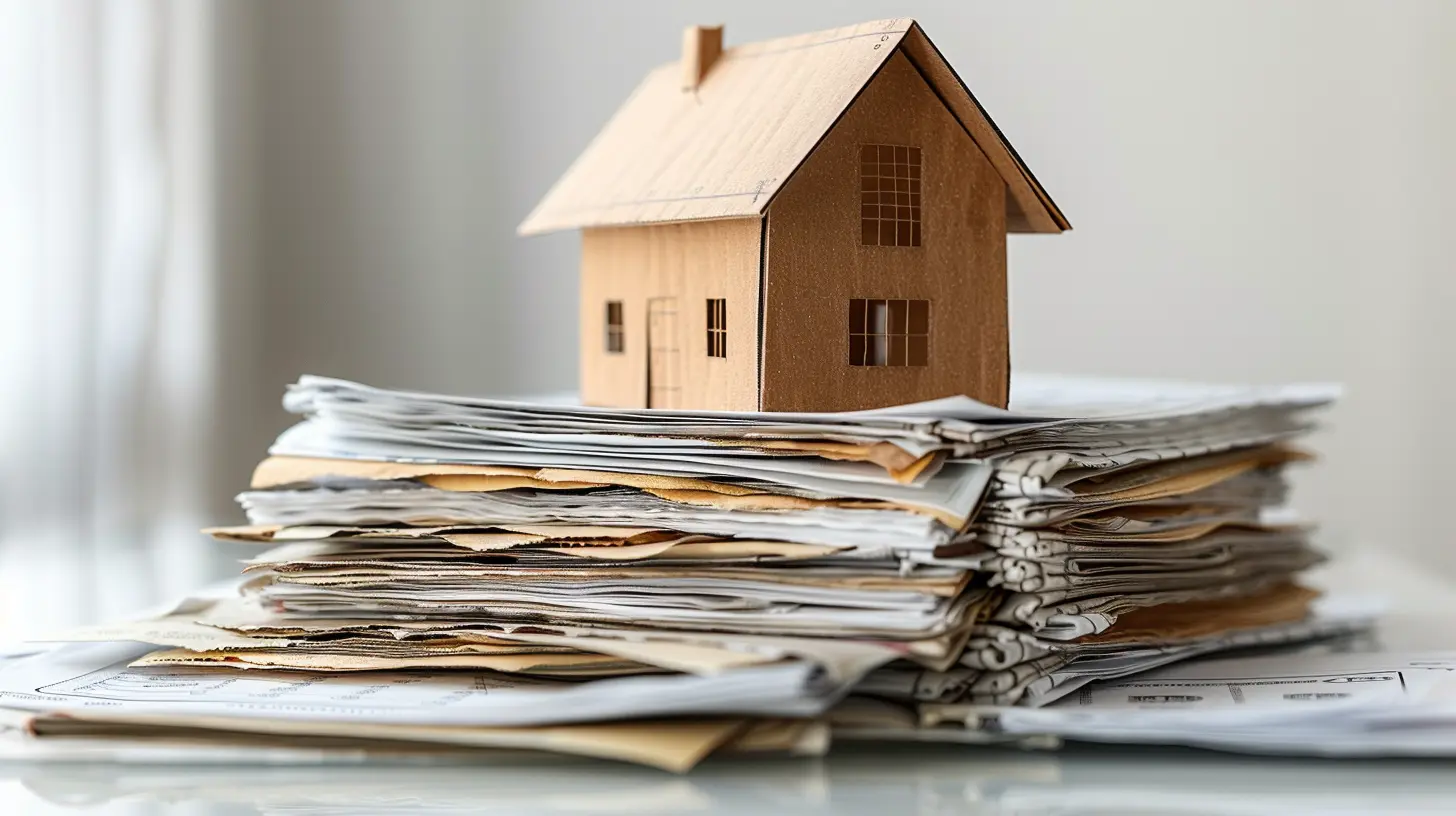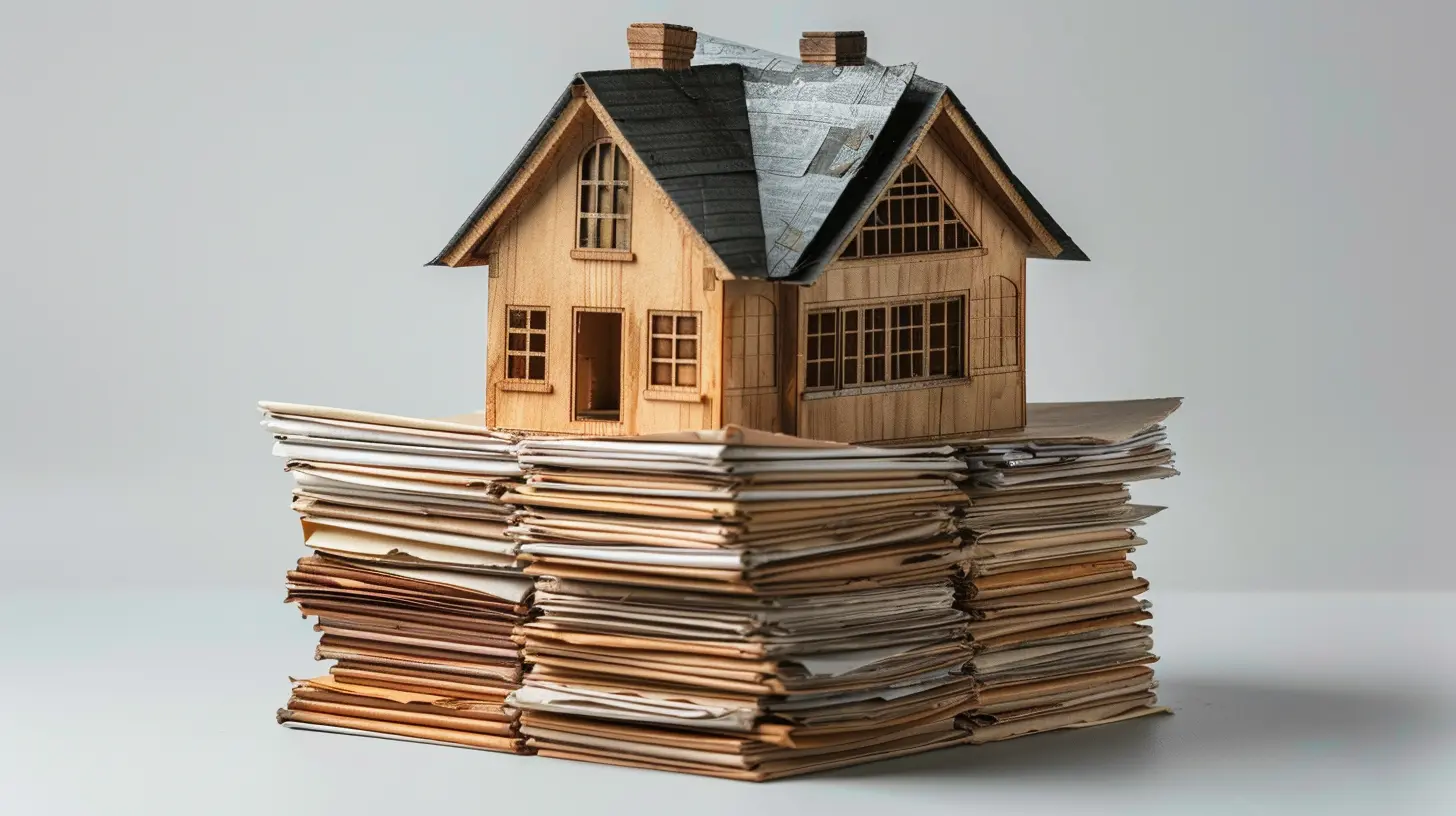Important Documents to Gather Before Applying for a Mortgage
17 November 2025
Let’s be real—getting ready to apply for a mortgage can feel a bit like prepping for a major life exam. There’s a lot of paperwork involved, and lenders want to see that you’re financially responsible and ready to handle the commitment of a home loan.
If you're already feeling overwhelmed, you're not alone. But the truth is, organizing the right documents ahead of time can make the whole mortgage process smoother, faster, and way less stressful. Think of it like gathering your ingredients before cooking a meal—you don’t want to be halfway through the recipe only to realize you’re missing eggs.
In this guide, we’ll break down exactly what documents you'll want in your mortgage application toolkit. Don’t worry—we’ll walk through it step-by-step, just like chatting with a friend.
Why Do Mortgage Lenders Need So Many Documents?
Before we jump into the checklist, let’s talk about the why. Why do lenders need to dig deep into your personal and financial life?Well, lenders aren’t just handing out hundreds of thousands of dollars without doing their homework. They need proof that:
- You can repay the loan (a.k.a. you have stable income).
- You’re financially reliable (credit history matters).
- You have enough savings to cover the down payment and closing costs.
- You’re not carrying too much debt.
So yeah, it’s not personal—it’s just due diligence. But good news: once you pull all these documents together, you’re well on your way to that front porch swing and white picket fence (or sleek city condo, if that’s more your vibe).
1. Proof of Identity
Here’s the easiest part—you just need to prove you’re really you.What You’ll Need:
- Government-issued photo ID (Driver’s License or Passport)- Social Security Number or Social Security Card
Some lenders may also run background checks to verify your identity further, but having a legal document with your photo and signature is the basic requirement.
2. Proof of Income
Next up—your income. Lenders want to confirm that you make enough money to cover the mortgage payments, ideally with a little breathing room.If You’re Employed:
- Pay stubs (last 30 days)These show your current earnings and employment status.
- W-2 Forms (last two years)
This gives lenders a historical look at your income consistency.
- Employer contact info
They may use this to verify your employment.
If You’re Self-Employed or Freelancing:
- Full tax returns (last two years)- Profit and loss statements
- Business license (if applicable)
- 1099 Forms (for contract work)
Pro tip: If your income fluctuates (hello freelancers), lenders might average your earnings over two years to determine eligibility.
3. Tax Returns
Whether you’re employed by a company or running your own show, you’ll definitely need to hand over your tax returns.What You’ll Need:
- Federal tax returns (1040s) from the last two years- All schedules and documentation included with your returns
These documents help validate your income, especially if you get bonuses, commissions, or seasonal pay.
4. Bank Statements
Think of your bank statements as a financial selfie—lenders want to see what’s going on in those accounts.What You’ll Need:
- All checking and savings account statements (last 2-3 months)- Any large deposits may need explanations or supporting documentation (e.g., gift letters, sale of property)
This shows lenders how much money you have on hand for down payments, reserves, and closing costs.
5. Asset Documentation
Beyond your regular bank accounts, do you have investments? Savings accounts? Retirement funds? These all count when lenders evaluate your financial backbone.What You May Need:
- 401(k), IRA, or other retirement account statements- Brokerage account statements
- Certificates of deposit (CDs)
Why does this matter? Because lenders like knowing you have a financial cushion. It’s reassuring for them—and for you.
6. Credit History and Debts
Fair warning—you won’t be able to hide those past-due credit cards or loans. Lenders look at your whole credit report, and you’ll likely need to provide documentation if anything looks funky.What You Might Need:
- Documentation on current debts (student loans, car loans, credit cards)- Letters of explanation for late payments, collections, or bankruptcies
- Divorce decrees and/or child support payment info
They’ll pull your credit score themselves, but bringing copies of your recent reports (from TransUnion, Equifax, and Experian) can help you stay ahead of the curve.
7. Proof of Down Payment Funds
Ready to drop that down payment? Great! But wait—your lender will want to know where that money came from.Acceptable Sources:
- Personal savings- Gifts from relatives (requires a gift letter confirming it's not a loan)
- Sale of assets (e.g. car, stocks—just keep documentation!)
- Grants or assistance programs
What You’ll Need:
- Bank statements showing funds- Gift letters (if applicable)
- Proof of liquidation of assets (if selling investments)
Trying to move money around last-minute can raise eyebrows, so try to gather and season your funds (leave them in your account) for at least 60 days prior to application.
8. Rental History
If you’ve been renting, some lenders want proof that you've been making those monthly payments on time.What You’ll Need:
- 12 months of canceled rent checks or bank statements showing consistent payments- Contact information for your landlord or property manager
- Lease agreement (sometimes)
This is especially important for first-time homebuyers who don’t have a mortgage track record to show off.
9. Employment Verification
Even with your pay stubs and W-2s, lenders like to double-check.What They’ll Do:
- Contact your employer directly via phone or written verification- Possibly request a Verification of Employment form (VOE)
If you’re self-employed, you may need to provide a CPA letter verifying your business and income stability.
10. Miscellaneous Documents You Might Need
Every mortgage application is a bit different, and sometimes lenders ask for random extras.Here are some you might want to have ready:
- Divorce decree or alimony/child support orders
(if applicable, these affect your monthly obligations)
- Bankruptcy discharge papers
(if declared in the last 7-10 years)
- Explanation letters
(for any red flags in your credit or financial history)
Tips to Stay Organized During the Process
Let’s face it—dealing with paperwork is nobody’s idea of a good time. But a little organization goes a long way.Here’s how to stay on top of things:
- Create a dedicated folder (digital or physical) for all your mortgage documents.
- Keep scanned copies of everything—it’s easy to email and upload.
- Label documents clearly (e.g. “2023_TaxReturn”).
- Keep your paperwork up to date. Lenders often ask for the most recent 30 or 60 days.
What Happens After You Submit the Documents?
Once you hand everything over, your mortgage lender will start the underwriting process. This is where they analyze your financials with a fine-tooth comb.They might come back asking for a few clarifications or additional documents. Don’t panic—this is totally normal. The more proactive and prepared you are from the start, the fewer headaches you’ll deal with later on.
Think of this stage as the home stretch. After underwriting, you’ll be ready for the exciting part: closing on your new home!
Final Thoughts
Applying for a mortgage isn’t the most thrilling part of buying a home, but it’s absolutely essential. And like most things in life, being prepared makes a massive difference.By gathering these documents ahead of time, you show lenders that you’re responsible, organized, and ready to take on homeownership. Plus, you’ll save yourself boatloads of time and stress.
So grab a cup of coffee, fire up your printer or scanner, and start putting together your mortgage application package. Before you know it, you’ll be unlocking the door to your very own home.
all images in this post were generated using AI tools
Category:
Mortgage TipsAuthor:

Yasmin McGee
Discussion
rate this article
1 comments
Zayden McIntyre
Prepare early: documents today secure your home tomorrow!
November 23, 2025 at 5:39 AM

Yasmin McGee
Absolutely! Gathering your documents early can streamline the mortgage process and help ensure a smoother experience.


